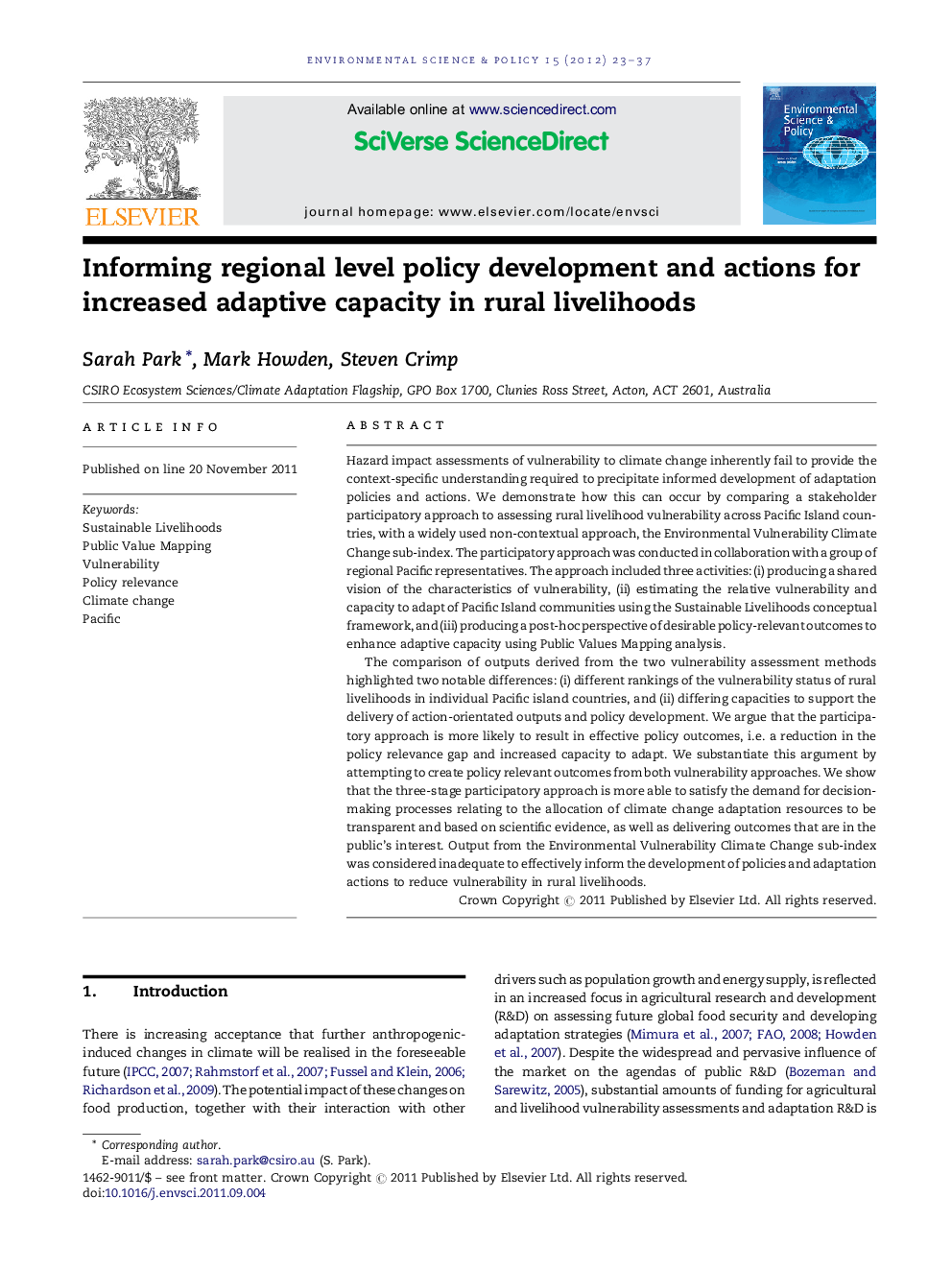| کد مقاله | کد نشریه | سال انتشار | مقاله انگلیسی | نسخه تمام متن |
|---|---|---|---|---|
| 1053857 | 946729 | 2012 | 15 صفحه PDF | دانلود رایگان |

Hazard impact assessments of vulnerability to climate change inherently fail to provide the context-specific understanding required to precipitate informed development of adaptation policies and actions. We demonstrate how this can occur by comparing a stakeholder participatory approach to assessing rural livelihood vulnerability across Pacific Island countries, with a widely used non-contextual approach, the Environmental Vulnerability Climate Change sub-index. The participatory approach was conducted in collaboration with a group of regional Pacific representatives. The approach included three activities: (i) producing a shared vision of the characteristics of vulnerability, (ii) estimating the relative vulnerability and capacity to adapt of Pacific Island communities using the Sustainable Livelihoods conceptual framework, and (iii) producing a post-hoc perspective of desirable policy-relevant outcomes to enhance adaptive capacity using Public Values Mapping analysis.The comparison of outputs derived from the two vulnerability assessment methods highlighted two notable differences: (i) different rankings of the vulnerability status of rural livelihoods in individual Pacific island countries, and (ii) differing capacities to support the delivery of action-orientated outputs and policy development. We argue that the participatory approach is more likely to result in effective policy outcomes, i.e. a reduction in the policy relevance gap and increased capacity to adapt. We substantiate this argument by attempting to create policy relevant outcomes from both vulnerability approaches. We show that the three-stage participatory approach is more able to satisfy the demand for decision-making processes relating to the allocation of climate change adaptation resources to be transparent and based on scientific evidence, as well as delivering outcomes that are in the public's interest. Output from the Environmental Vulnerability Climate Change sub-index was considered inadequate to effectively inform the development of policies and adaptation actions to reduce vulnerability in rural livelihoods.
► Vulnerability assessment framework developed using stakeholder participation tools.
► Framework used to assess vulnerability of rural stakeholders across the Pacific.
► Contextual understanding of vulnerability and policy-relevant outputs produced.
► Enables decision-making to be transparent, in public's interest, evidence-based.
► Informs enhancement of enabling environment for broader sustainable development.
Journal: Environmental Science & Policy - Volume 15, Issue 1, January 2012, Pages 23–37